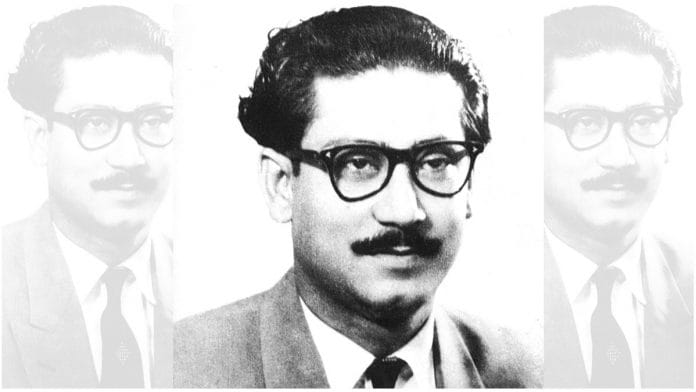New Delhi: Captain Abdul Majed was Saturday midnight hanged in Bangladesh’s capital city Dhaka for the assassination of Sheikh Mujibur Rahman, the country’s founding president and father to current prime minister Sheikh Hasina.
Captain Majed was arrested in Dhaka last week. It appears he told Bangladeshi authorities that he had been hiding in Kolkata for a long time. He was quickly executed since he was carrying a death sentence since 1998, which was upheld in 2009.
Army coup
After a group broke away from his party and started insurgent activities, Rahman had panicked. So on 14 June 1975, he imposed an emergency in the country.
Army officers at the time decided the emergency could not continue and approached Ziaur Rahman, the second highest ranking Army officer. The group planned to carry out a coup and assassinate Mujib if he didn’t surrender.
On 15 August 1975, a group from the first armoured division spilt into four groups. One of the groups went to Mujib’s house to assassinate him while the others ensured his defence forces could not respond.
Mujib’s son was first killed, followed by the chief of military intelligence who tried to stop the killing. Then Mujib’s younger brother and wife were killed as well as his two younger sons and daughters-in-law. When Mujib refused to surrender, he was killed and several other family members were assassinated.
Also read: Bangladesh is rising while Pakistan is sinking — praise from Modi on Mujibur birth centenary
What followed
Sheikh Mujib’s party members were arrested and later killed in jails. Khondaker Mostaq Ahmad, then commerce minister of Bangladesh, who had supported the coup, was made in-charge of the administration.
Upset by what was happening, war hero Brigadier Khaled Mosharraf carried out a coup of his own. He, however, didn’t intend to rule the country, but wanted to restore some order. This lasted just four days as Rahman, who was appointed chief of Army Staff by then, managed to take power from Mosharraf.
While the coup was planned to ensure Sheikh Mujibur Rahman lost power, which is why his family was also killed, two of his daughters escaped since they were in West Germany then. This included Sheikh Hasina, who later took refuge in Delhi.
In 1996, Sheikh Hasina came to power and many of those involved in the coup and subsequent assassinations have been executed since. Some are under investigation while others are being traced.
Watch the latest episode of CTC here:






